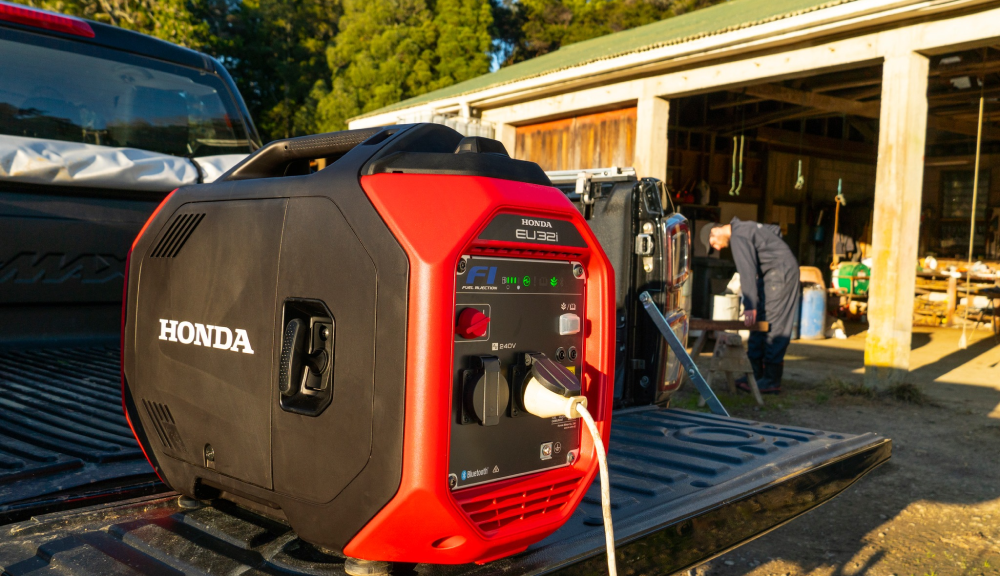
How to choose a Home Standby Generator
If you intend to buy a generator set for your home, remember that the equation 8kW mains power = 8kW generator is wrong, in fact the power you need is most likely higher.
Equipment such as air conditioners, electric gates and doors, refrigerators, dishwashers, electric pumps, electric motors in general have starting peak powers ranging from x1.5 to x2.7 times the rated power of the equipment.Due to this false myth, very often we receive requests to offer a "Home stand-by generator" without even specifying the power.
The best advice we can give you, if you are not able to list precisely the electrical equipment that you will need to power, ask your trusted electrician to do the count.If you are planning to use the generator set as pure emergency back-up power, for a limited period of time, you can exclude some equipment during the emergency period so that you can manage it with a smaller generator. But given the investment you are going to make, and considering that our homes have become, and will become, more energy-intensive over the years it is recommended not to skimp on kW because you risk regretting this choice.
Like any other machinery, it needs care and precautions to keep it in good condition and if you follow the maintenance procedures it can really last you a lifetime.Identifying the generator model that best suits your needs, and your home, is not just a matter of power selection, but there are other parameters that influence this decision and here's what you should know to make the right choice.
Fuel Type:
Home stand-by generators models are available in petrol and diesel
The choice of the type of fuel may depend on practical factors, such as the presence of other machines with diesel rather than petrol engines.Those who buy a petrol generator have lower initial investment and maintenance costs, it is excellent for managing emergency situations for limited periods, petrol generators are also often quieter than their diesel equivalents. Diesel is a classic, so great for hard, uninterrupted work, even 24h/7.
Diesel generators are very fuel efficient and range in size from 3kW to 2000kW. Diesel engines need help when starting at low temperatures, so if you expect the generator to be in an environment of 0°C or less, preheating systems must be included.

Sound level:
Like any motorized machinery, the generator set makes noise.
The noise level of the generator is normally expressed in dBA measured at a distance of 7 metres. If you intend to install the generator in a built-up area, outdoors, to keep the neighborhood friendly, it is recommended that the sound level should not exceed 70dBA.
Never purchase an open (not silent, without canopy) generator for a residential installation in a built-up area unless you have a room or container in which to place it, with proper exhaust fumes and ventilation arrangements to cushion the sound emissions.
Installation Site:
What kind of space do you have for your generating set?
Outdoors, under a roof, inside a shelter or in a room?If the installation is outdoors, make sure that the canopy of your generator is suitable for outdoor use.
It is dangerous to place outdoors Open type generators, which must be protected from atmospheric agents and install them in a closed environment. With smaller, open frame type generators on the market, it is always preferable to place them at least under a roof; let's not forget that electricity and water don't get along very well and that additional protection is never too much. In general, just like with your car, it's okay to park it outside, but if it's possible to park it inside a garage or under a shed, it's better, both in summer and in winter. Make sure unauthorized personnel do not have access to your generator.
Therefore, a lockable fence, away from fuel, flammable materials, and chemicals, with a protective roof, is always the best choice. Even in outdoor installations, you must be sure exhaust smoke doesn’t directly reach people or buildings.In case of installation indoors the dimensions of the room are fundamental. Check the following conditions carefully:
- The room is suitably sized to allow access to the engine and generator for ordinary maintenance and any repairs (on at least 3 sides). Always follow manufactures recommendations regarding distance form walls etc.
- The openings in the room allow sufficient fresh air flow for combustion and for cooling your generator.
- A suitable engine exhaust gas extraction line has been designed.
- Remember your generator must be transported inside the installation site. It seems a silly consideration, but it is often forgotten that it is necessary to reach a basement or a raised floor where and there are not adequate accesses or the entrance door is not wide enough, and then you have to break walls, hire cranes, etc.
- Do not channel air outlet into closed rooms, garages, other people's private property, towards flammable materials or people, etc.
- Another aspect often overlooked is that the place where the generator will be installed should be flood-proof.
The Automatic Switchgear (ATS):
Home Stand-by generator becomes part of a system that intervenes in emergency situations when the current supplied by the electricity grid fails. This also includes an Automatic Transfer Switch (ATS), which automatically switches on the generator in the event of a power failure and transfers the house utilities to be supplied with electricity in about 30 seconds. The ATS is metal or plastic box that contain contactors, to be fixed to the wall.
As for generators, there are ATS suitable for outdoor installation and others for indoor use only.Bear in mind if you are installing a ATS with your generator that you will need a larger generator. A common issue is that when a power outage happens, the full load comes on at once and overloads the generator causing it to cut out.A common alternative is a manual change over switch. These are very cost effective and reliable, discuss with your generator supplier or your electrician what is the best solution for your application.
And after?
If you take care of your generator, it really can last you a lifetime. Timely routine maintenance makes the difference.
Find out which generator is right for you:
If you’re still unsure what generator you need to suit your requirements feel free to call us on 0800 378 478 or visit us one of our stores.

